How to watch TV in an RV without cable? is a question that many people are asking these days. With the rise of streaming services, it’s no wonder people are looking for ways to watch their favorite shows while on the road. Fortunately, there are a few alternatives to watching TV in an RV without cable! In this article, we will discuss some of the best methods for getting your entertainment fixed while on vacation.
Table of Contents
How Do You Stream TV in Your RV?
You don’t need a satellite dish or expensive cable package to enjoy your favorite shows while on the road. All you need is a good internet connection and a streaming device, and you’re all set!
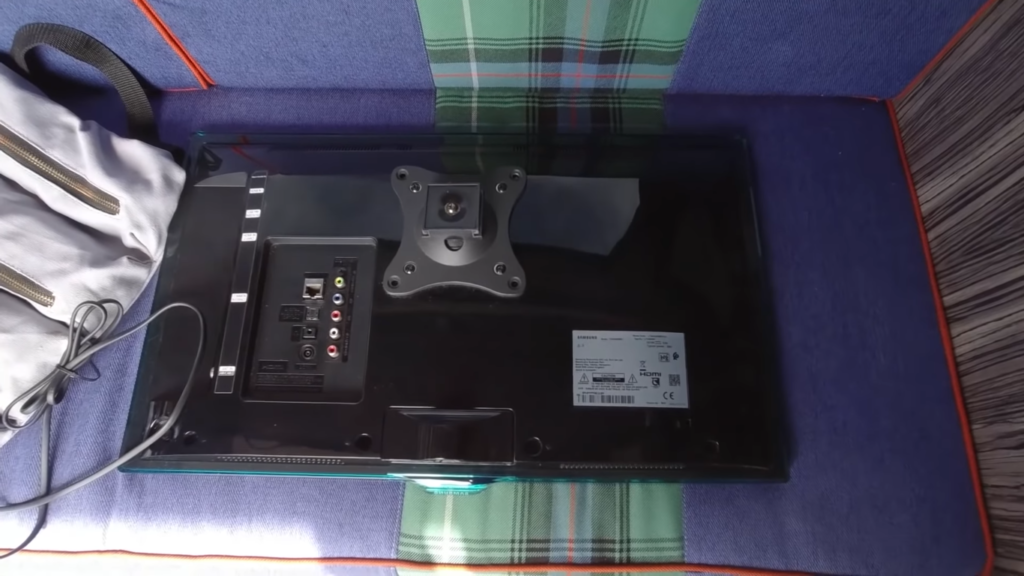
There are a few different options for streaming television in the RV. You can use an antenna to pick up local channels for free, or you can sign up for a streaming service.
If you want the most channels and the best picture quality, you’ll need to get a little creative with your setup. We’ll go over all of the different options below so that you can choose what’s best for you.
Easy Ways to Watch TV in an RV (With or Without Cable)
One of the easiest ways to watch TV in the RV without cable is by using an antenna. If you’re not familiar with antennas, they are devices that allow you to pick up over-the-air television signals.
There are a few different types of antennas, but the most popular type is the rooftop antenna. Rooftop antennas are easy to install and they provide a good range, which means that you’ll be able to pick up a lot of channels.
Watch Antenna TV in an RV
If you don’t want to install a rooftop antenna, there are also portable antennas that you can use. Portable antennas are small and easy to set up, and they usually come with suction cups so that you can attach them to your RV’s window.
Another easy way is by using a streaming device. Streaming devices allow you to watch TV shows and movies on demand from a variety of different services, such as Netflix, Hulu, Amazon Prime Video, and more.
There are a few different types of streaming devices, but the most popular ones are Roku and Amazon Fire TV. Both of these devices are small and easy to use, and they come with a variety of different channels and apps that you can access.
If you’re not interested in using an antenna or a streaming device, there’s one other option. That option is satellite TV.
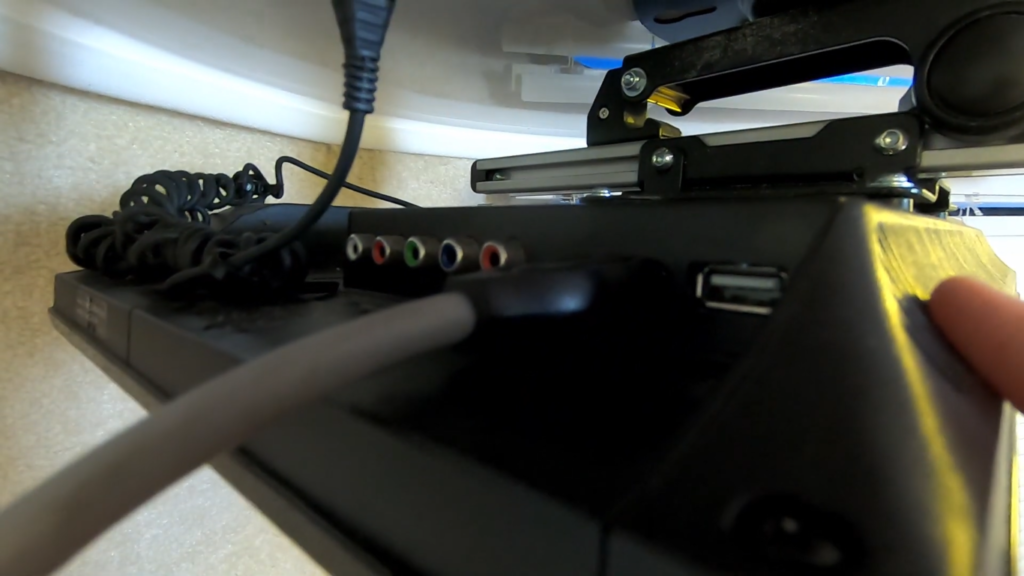
Pros:
- Satellite TV is available almost anywhere, which means that you can get a signal even if you’re in the middle of nowhere.
- Satellite TV doesn’t require a physical cable connection.
Cons:
- Satellite TV can be expensive.
- Satellite TV also requires a clear view of the sky, so it might not be the best option for everyone.
If you’re planning on watching TV in your RV while you’re on the road, satellite TV might be the best option for you.
Streaming TV for RV Travel
If you’re looking for a more permanent solution, or if you just want to get rid of cable altogether, then streaming TV is a great option for RVers. There are diverse ways that you can stream TV while on the road.
The first way is to use an over-the-air antenna. This is the same type of antenna that you would use at home to pick up local channels like ABC, CBS, NBC, and Fox. However, there are a few things that you need to bear in mind when using an over-the-air antenna in your RV.
- First, ensure that the RV is parked in an area where there is a strong signal. If the signal is weak, you’ll either get a fuzzy picture or no picture at all.
- Second, you’ll need to make sure that the RV antenna is properly grounded. If it’s not, you could end up damaging your TV.
- Finally, if you’re going to be traveling in an area where there are a lot of tall buildings or trees, you may want to invest in a directional RV antenna. This type of antenna will help to boost the signal and give you a better picture.
Smart TV
Another option is to use a smart TV. A smart TV is a television that has built-in internet capabilities. This means that you can connect to the internet and stream shows and movies.
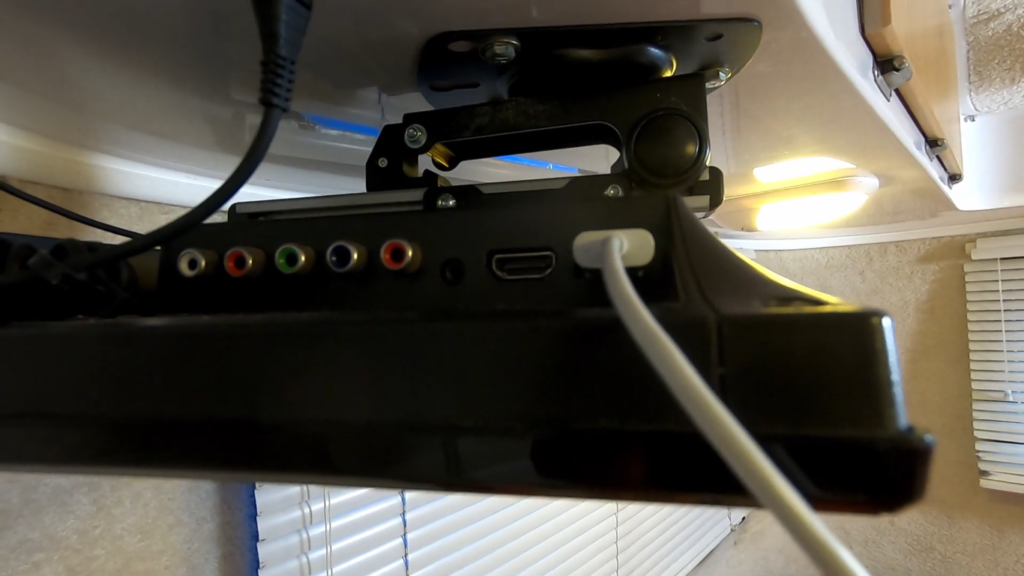
One of the great things about using a smart TV in your RV is that you don’t need to worry about losing any signal. As long as you have an internet connection, you’ll be able to watch your favorite shows and movies.
The downside of using a smart TV is that they can be a bit more expensive than traditional TVs. However, if you’re looking for the best possible picture quality, then a smart TV is definitely the way to go.
If you’re not sure what type of TV to get for your RV, then you can always ask the experts at the RV dealership. They’ll be able to help you find the perfect TV for your needs.
Roku
Roku is a small device that you can use to stream TV in your RV. Roku plugs into the back of your TV and gives you access to over 500,000 movies and TV shows. You can also use Roku to listen to music, play games, and more.
One of the great things about Roku is that it’s very easy to use.
Another advantage of using Roku is that it’s very affordable. The basic model starts at just $30, making it a great option for budget-conscious RVers.
If you’re looking for a great way to watch TV in your RV without cable, then Roku is definitely a good option. It’s easy to use, affordable, and gives you access to tons of movies and TV shows.
Apple TV
Apple TV is another great option for streaming TV in your RV.
One of the finest aspects of utilizing an Apple TV in your RV is how simple it is to operate. You can use the remote that comes with your purchase or elect to control it from your iPhone.
Another advantage of using Apple TV is that it’s compatible with all of your other Apple devices. So if you have an iPhone, iPad, or Mac, you’ll be able to seamlessly integrate Apple TV into your existing ecosystem.
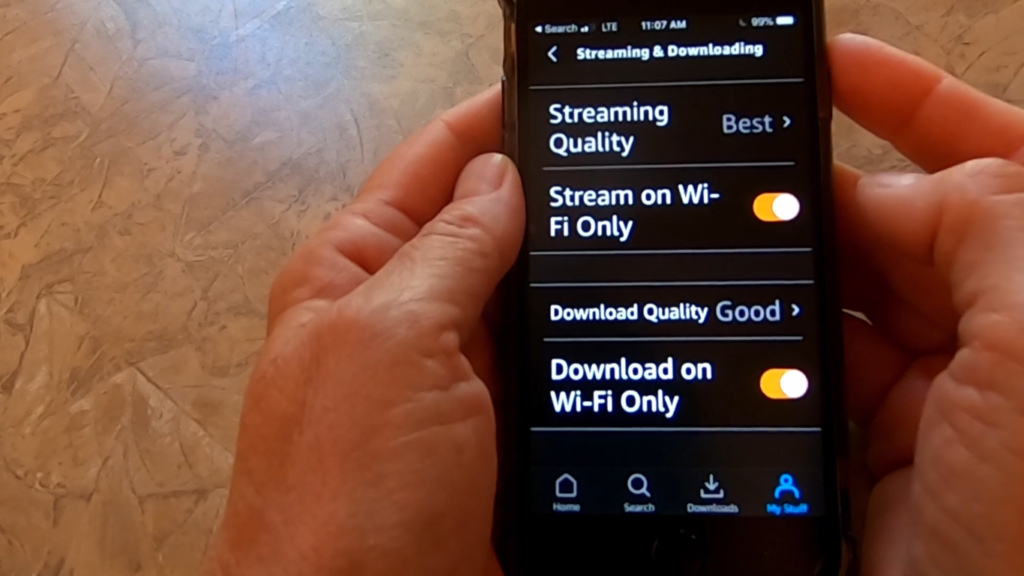
If you’re looking for a great way to watch TV in your RV and you already have some Apple products, then Apple TV is definitely the way to go. It’s easy to use, gives you access to tons of content, and integrates seamlessly with your existing Apple ecosystem.
Amazon Fire TV
Amazon Fire TV is another great option for streaming TV in your RV. Amazon Fire TV gives you access to over 500,000 movies and TV shows, as well as music, games, and more.
One of the best things about using Amazon Fire TV in your RV is that it’s very easy to use. You can either use the remote that comes with the device or your Amazon Echo as a controller.
Another advantage of using Amazon Fire TV is that it’s compatible with all of your other Amazon devices. So if you have an Amazon Echo, Kindle, or Fire tablet, you’ll be able to seamlessly integrate Amazon Fire TV into your existing ecosystem.
The primary disadvantage of utilizing an Amazon Fire TV is that it is somewhat more costly than some of the alternatives on this list. The basic model starts at $99.
Pros:
There are many advantages to streaming TV in your RV. First, it’s very affordable. You can get a basic Roku for just $30. Second, it’s easy to use. You can either use the Roku remote or your smartphone as a controller. Finally, you will have access to anEXTENSIVE library of films and television programs. Finally, it’s very portable so you can take it with you on the go.
Cons:
There are also some disadvantages to streaming TV in your RV. First, you’ll need an internet connection in order to stream content. If you’re going to be traveling in areas with spotty internet coverage, then you may want to consider another option. Second, some of the devices on this list (like Apple TV) are more expensive than others.
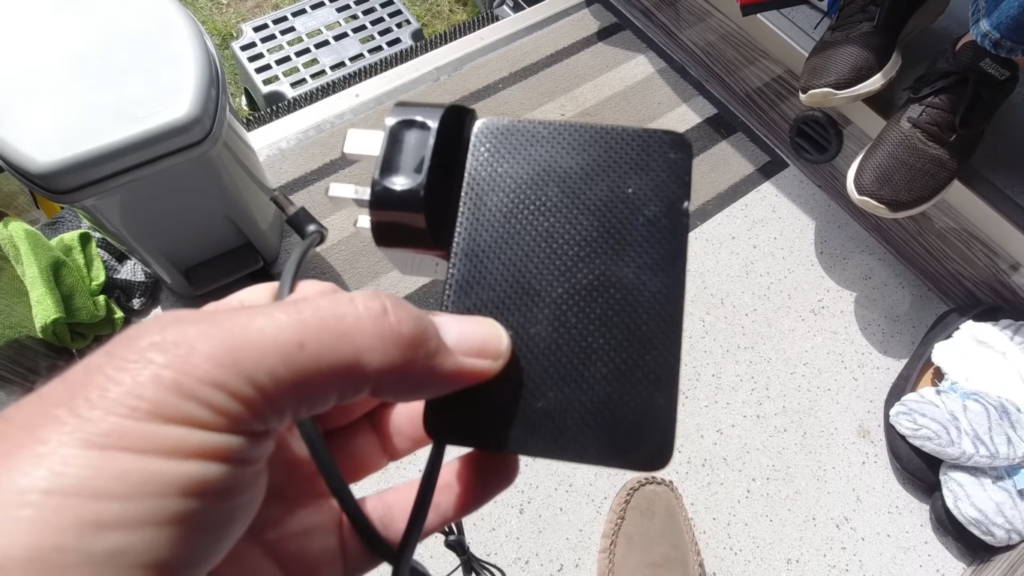
Satellite TV for RVers
If you’re looking for a more traditional television-watching experience while on the road, then satellite TV is probably your best bet. You’ll need to purchase or rent a satellite dish and receiver, but once you have that set up, you’ll be able to access a wide variety of channels just like you would at home.
Pros:
- You’ll have access to a wide variety of channels, including many premium channels that you wouldn’t be able to get with an antenna.
- Satellite TV is less affected by bad weather than other options like streaming or terrestrial TV.
- If you’re already paying for satellite TV at home, you may be able to get a discount on your RV package.
Cons:
- Satellite TV can be expensive, especially if you’re not already paying for it at home.
- You’ll need to set up and take down the satellite dish every time you move, which can be a hassle.
- The quality of your signal will depend on your location, so you may not always have perfect reception.
Watch Cable TV in an RV
If you’re staying at an RV park that has cable TV hookups, then you’re in luck! You can just connect your RV to the cable and watch away. However, if you’re boondocking or dry camping, then you’ll need to get a little creative.
One option is to use a long range HDTV antenna. These antennas are designed to pick up signals from far away, so they’re perfect for RVs. Just point the antenna in the general direction of the nearest city and see what comes in!
Another option is to sign up for a streaming service like Netflix or Hulu. This way, you can watch your favorite shows and movies without using any data. Just make sure you have a good WiFi connection!
Pros:
- You can get all the channels you want without having to pay for a cable package.
- You don’t have to worry about contracts or commitments.
- There are no installation fees.
Cons:
- You need to be in a location with good signal reception.
- If you want premium channels, you’ll need to pay for them separately.
- You might not get all the channels you want. [1]
How Fast of a Connection Do You Need for Streaming TV in Your RV?
The first question you need to answer is how much speed do you need for the RV TV streaming you want to do? The short answer is that for most people, any internet connection above 25 Mbps should be enough.
However, there are a few things to keep in mind that could impact the amount of speed you need. If you plan on doing a lot of gaming or other activities that require high bandwidth, then you’ll need a faster connection.
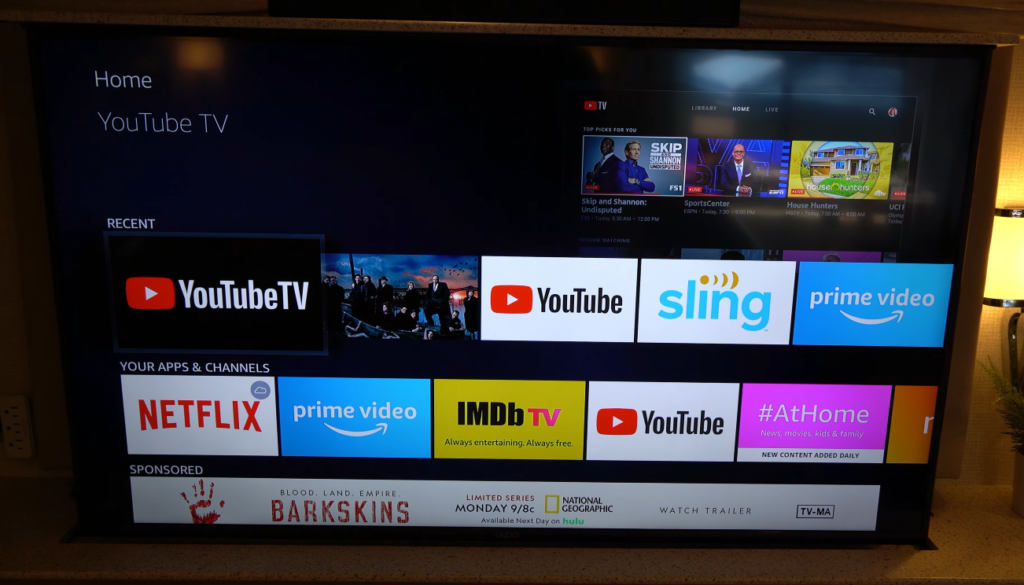
In general, though, as long as your RV is close enough to a cell tower or has access to a good WiFi signal, you should be able to find a package that will give you the speed you need for streaming TV.
How Much Data Does Streaming Use?
This is one of the most common questions we get when it comes to cord-cutting. And understandably so – data can be expensive, and no one wants to go over their limit.
The good news is that streaming doesn’t use nearly as much data as you might think. In fact, according to our research, streaming an hour of HD video uses around three gigabytes of data. So if you have a basic internet plan with around 30 GB of data per month, you can easily stream around ten hours of TV without going over your limit.
Of course, this varies depending on the quality of your video stream and your internet connection speed. If you’re trying to stream in 1080p or even higher, you’ll use more data. And if your internet connection is on the slower side, you’ll also use more data. [3]
But in general, streaming an hour of HD video should only use around three gigabytes of data. So if you’re careful about your quality settings and you have a decent internet connection, you shouldn’t have any problems streaming TV in your RV without cable.
FAQ
Can I watch Netflix on my RV TV?
Yes! You can watch Netflix on your RV TV just like you would at home. All you need is an internet connection and a compatible device. You can use a streaming media player, game console, or smart TV to access Netflix.
If you have a satellite dish installed on your RV, you can also get Netflix that way. Some satellite TV providers offer packages that include Netflix. Dish Network, for example, offers the Hopper with Sling DVR which gives you access to live and recorded TV, as well as apps like Netflix. [4]
Another option for watching Netflix in your RV is to connect your laptop or mobile device to the TV using an HDMI cable. This will allow you to stream Netflix directly from your device to the TV.
Will a fire stick work in an RV?
Yes, a fire stick will work in an RV. You just need to make sure you have a good internet connection.
If you’re not familiar with a fire stick, it’s a small device that plugs into your TV’s HDMI port and gives you access to streaming services like Netflix, Hulu, Amazon Prime Video, etc.
You can also use a fire stick to watch live TV, if you have the right subscription (more on that later). [5]
So, if you’re looking for ways to watch TV in your RV without cable, a fire stick is definitely one option.
How do I connect my TV to my RV?
There are a few ways that you can connect your TV to your RV. One way is to use an over-the-air antenna. Another way is to use a satellite dish. And, lastly, you can use a cable connection.
If you want to watch TV in your RV without cable, then you will need to either use an over-the-air antenna or a satellite dish. If you have a TV that has a digital tuner, then you will need to get an over-the-air antenna. You can find these at most electronics stores or online. [6]
Once you have your over-the-air antenna, you will need to point it in the direction of the nearest television station. You can find this information online or by using a TV guide.
Can you use a regular flat screen TV in an RV?
Yes, you can use a regular flat screen TV in your RV. However, you will need to purchase a special converter box that will allow you to connect your TV to the RV’s electrical system. You can find these converter boxes at most electronics stores.
Another option is to purchase a portable satellite dish that you can set up outside of your RV. This will give you access to the same channels you would get with a cable TV service. [7]
If you are planning on doing a lot of RVing, it might be worth investing in a small generator so that you can power your TV and other electronics while on the road. This will ensure that you never have to go without your favorite shows!
Useful Video: Van Life Hack | How to watch TV in your van or RV
Conclusion
There are various ways that you can watch TV in your RV without cable. By using a converter box or portable satellite dish, you will be able to enjoy all of your favorite channels while on the road. Just make sure that you have a good power source so that your TV doesn’t go out in the middle of your favorite show! Thanks for reading. We hope this article was helpful.
References
- https://www.getawaycouple.com/streaming-tv-in-your-rv/
- https://updater.com/guides/how-much-speed-for-streaming
- https://www.snnow.ca/support/watching-snnow/getting-started/how-much-data-does-video-streaming-use-2
- https://maxview.co.uk/can-i-get-netflix-in-my-campervan-motorhome-streaming-and-tv-faqs-answered/
- https://rvblogger.com/blog/can-i-use-my-fire-stick-while-rv-camping/
- https://goneoutdoors.com/hook-up-tv-rv-6965882.html
- https://rvshare.com/blog/rv-tv/

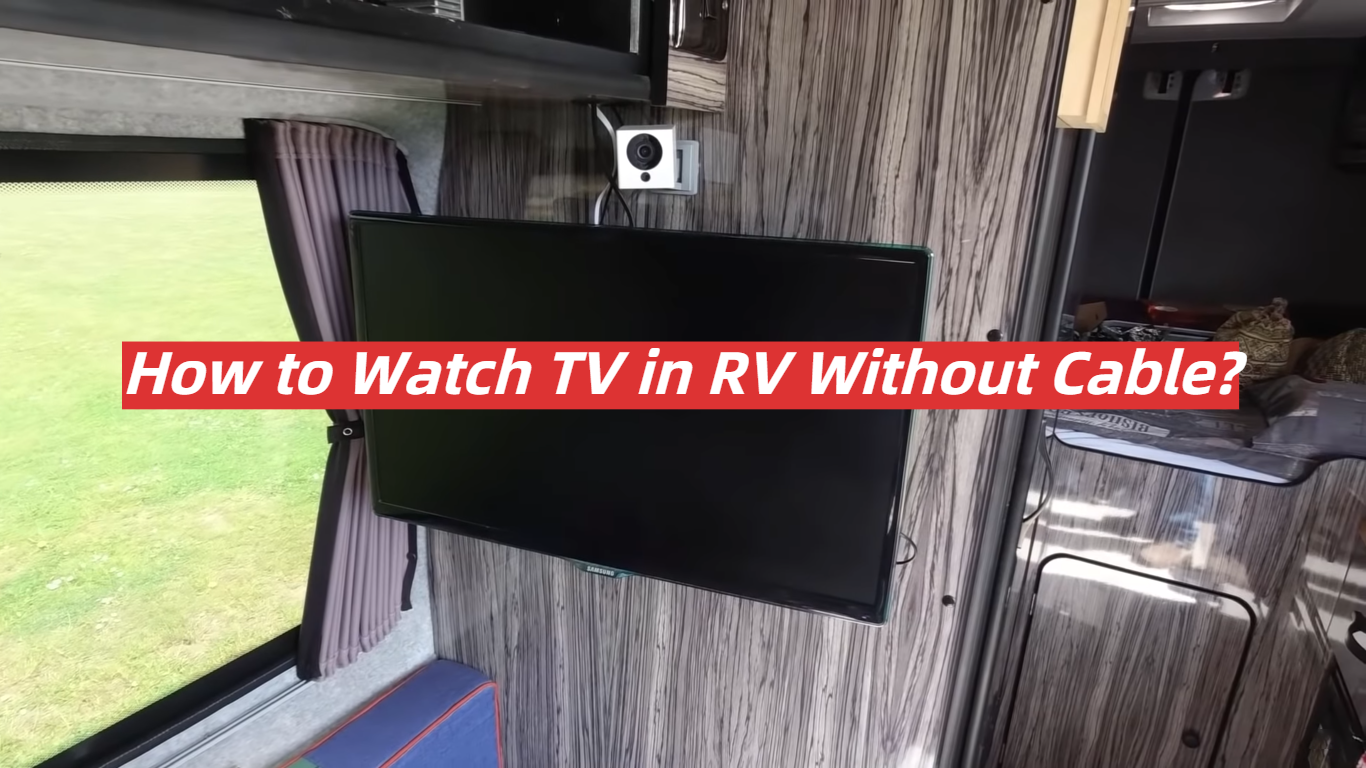


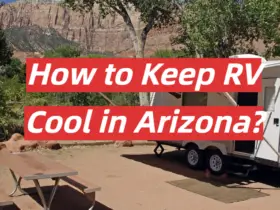
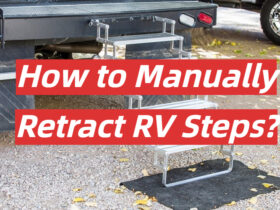
Leave a Reply